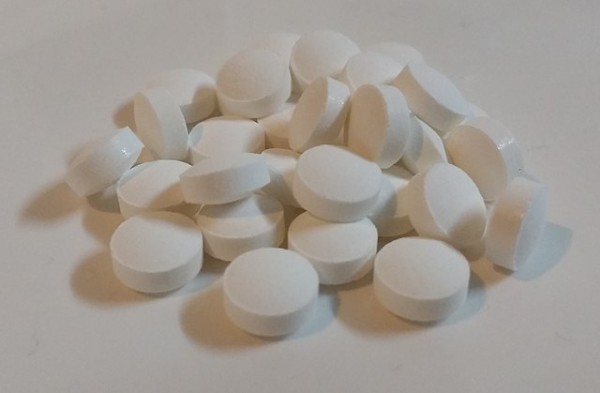Researchers Find a Correlation Between Zinc Deficiency and Poor COVID-19 Outcomes
COVID-19 infections can lead to various outcomes, from asymptomatic to mild symptoms, as well as severe pathologies like acute respiratory distress and pneumonia that can possibly be fatal.
Such outcomes make it crucial that scientists identify biomarkers that forecast severe illness during the early stages of infection.
Identifying the biomarkers for forecasting COVID-19 outcomes will improve the prognosis and treatment of the virus.
In connection to this, a research team with members from different universities and institutes in Spain recently published a study in medRxiv, a preprint server, in which they theorized that "serum zink levels" have a substantial impact on the progression of COVID-19 and thus, may be a useful biomarker in forecasting severe illness in this infectious disease's early stages.
ALSO READ: Doctors Say Excessive Handwashing in Fight Against COVID-19 Increased OCD Cases

Researchers said they believe that there is an immediate need to start supplementing individuals with zinc deficiency with zinc while they were admitted to for their zinc levels to return to normal range.
How Zinc Works in the Immune System
Zinc is a trace element found in the body, playing numerous roles vital for maintaining a variety of basic biological processes. Essentially, according to research, this element functions as a gesturing "molecule, cofactor and structural element."
One of zinc's most vital roles in the human body is its effect on the immune system. Specifically, zinc levels impact both innate and adaptive immunity.
This element balances an individual's immune response and initiates a direct antiviral action to fight some viruses.
Zinc deficiency results from a low intake of zinc or zinc malabsorption. It is typical in the elderly population, as well as those who have underlying conditions - the two groups more susceptible to severe COVID-19.
As a result, such a deficiency leads to an immune imbalance that can eventually result in a significant public health concern that impacts at-risk people even more.
DON'T MISS THIS: COVID-19 Update: Recent Developments Regarding the Infectious Disease
The Link Between COVID-19 and Serum Zinc Levels
Research finds a strong connection between COVID-19 and serum zinc levels. To identify the link, the research team ran a retrospective, observational study that engaged around 249 patients with COVID-19 who were admitted at the hospital.
They investigated the severity of COVID-19, including its progression in the admitted individuals. They also comparatively analyzed the replication of the infectious disease in the Vero E6 cell line at various zinc concentrations.
As a result, the study authors found an association between COVID-19 outcome and levels of serum zinc. Specifically, patients who had serum levels below 50 mcg/dl, defining the cut-off for zinc deficiency and developing related clinical symptoms during admission, showed worse clinical presentation to achieve longer stability and had a higher mortality rate.
Furthermore, the study's in vitro results found that lower zinc levels favor the virus's expansion in cells infected with SARS-CoV-2. Therefore, investigators suggested that zinc supplementation in at-high risk populations may reduce the severity of COVID-19.
A Well-Known Link
The link found between serum zinc levels and the health of humans is well known. Relatively, zinc deficiency stays a major nutritional problem in many countries because of poor nutrition, resulting in low zinc intake.
In addition, even in developed nations, zinc deficiency is dominant in about 15 to 31 percent of the older adult population.
The research team said their research aimed at "bringing clinical attention to serum zinc concentrations in patients with COVID-19."
Their analysis presented a strong link between low serum zinc levels and the severity of COVID-19 and mortality. More so, the study authors thought the reason behind such an association could be the combined imbalanced immune system and improved viral replication in individuals who had zinc deficiency.
Therefore, they suggested serum zinc levels as a "new biomarker" that contributes to predicting COVID-19 outcomes.
Lastly, the researchers said they believe that there is an immediate need to start supplementing individuals with zinc deficiency with zinc. At the same time, they were admitted to for their zinc levels to return to normal range.
They recommended that prophylactic supplementation in at-risk populations like the elderly, to alleviate the severity of COVID-19.
IN CASE YOU MISSED IT: Case Report at Children's National Hospital Raises Concern for Resistance to Antibiotic
Check out more news and information on COVID-19 on MD News Daily.
Oct 14, 2020 12:06 AM EDT





